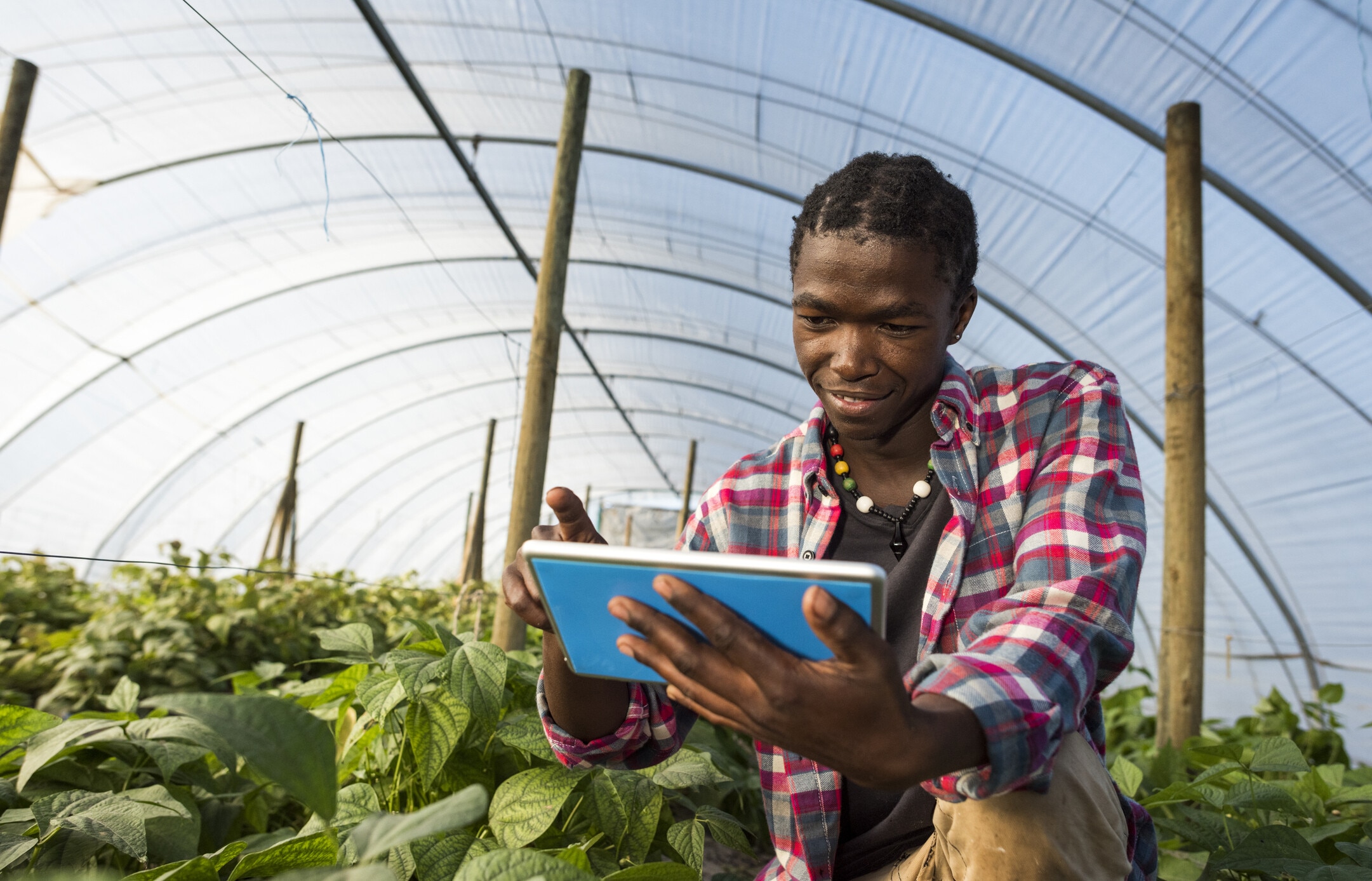Q&A: How supporting early-stage start-ups can help achieve climate and nature goals

Early-stage start-ups like it's electric are working on breakthrough technologies that could help the world meet Sustainable Development Goals.
Image: Riccardo Annandale/Unsplash
Stay up to date:
Emerging Technologies
- Early-stage start-ups are working on breakthrough technologies that could help the world meet the promises of the Sustainable Development Goals.
- However, they need the right capital and corporate partners to help them grow.
- In this article, John Dutton, Head of UpLink, explains how the World Economic Forum’s initiative has created an ecosystem to support early-stage start-ups that are working to solve the world's sustainability challenges and take urgent action on the climate crisis.
Building the global capacity needed to develop innovative sustainability-based solutions and technologies is crucial to meeting the world’s climate and nature goals.
By supporting early-stage start-ups working on these breakthrough technologies, capital and corporate partners can help them to grow. But this requires investors that are not afraid of risk —a difficult ask against the current backdrop of social instability and economic uncertainty around the world.
Purpose-driven, innovation-led communities play a crucial role in helping early-stage start-ups gain vital visibility and support from investors to expand their solutions.
We spoke with the leader of one such community, John Dutton, Head of UpLink, a World Economic Forum initiative launched in partnership with Deloitte and Salesforce in 2020. He has led this project since its inception in 2020, identifying and supporting over 450 high-quality and highly scalable impactful solutions across all Sustainable Development Goal (SDG) areas. In this interview, Dutton explains why it is critical to support early-stage start-ups and shares UpLink’s ecosystem building approach as a long-term strategy to help climate and nature solutions thrive.
Why is it important to invest in and support early-stage start-ups?
In recent decades, early-stage start-ups have been the riskiest portion of the investment ecosystem. They might have a great idea, but they might also stumble, or need to pivot. As a result, a lot of investment goes towards more established businesses, those seen as more of a “sure bet”.
However, if we are going to hit net-zero, more than 50% of the technology that needs to be a part of the climate transition has not been created yet. Those ideas have to come from somewhere. They don’t magically appear as late-stage companies that are easy to invest in and without risk. For UpLink, it’s really important to support this early-stage start-up ecosystem and try to convince policymakers, corporate leaders and investors to also support it so we can hit a lot of planetary and societal goals.
In recent decades, early-stage start-ups have been the riskiest portion of the investment ecosystem. They might have a great idea, but they might also stumble, or need to pivot.
”How did UpLink come about?
UpLink is the open innovation platform of the World Economic Forum. It was launched at the World Economic Forum’s Annual Meeting in Davos in January 2020, alongside founding partners Salesforce and Deloitte. Its vision is to drive an entrepreneurial revolution to achieve the SDGs. From the World Economic Forum's perspective, there is no better way to do that than by supporting innovative early-stage start-ups to drive the necessary positive impact.
Our digital platform, based on Salesforce technology, finds entrepreneurs with the most potential to scale. We started in the area of creating a positive impact on the world’s oceans and have expanded to nearly 10 different sustainability areas. This includes water, food, sustainable mining, decarbonising aviation, the circular economy, and forest restoration and resiliency.
We have run more than 56 innovation challenges that have helped source around 7,000 entrepreneurs. They put their businesses and their models onto the platform and from that we've selected about 450 start-ups that we are actively supporting.
Our ecosystem of supporters helps these ideas grow from start-up phase through to real scale and impact.
”When UpLink welcomes winning start-ups, it names them Top Innovators. What are Top Innovators?
An UpLink Top Innovator is an early-stage company that puts the SDGs and positive impact at the heart of its business model. We aim to demonstrate that the companies can do good and do well at the same time.
We work with for-profit enterprises that are typically at the pre-seed, seed or series A level. Being involved in UpLink provides an opportunity to grow. Over the last four years several of these start-ups have now scaled into later stage development and expanded overseas into new geographies. And they’ve provided a return on investment to their shareholders and stakeholders.
Accept our marketing cookies to access this content.
These cookies are currently disabled in your browser.
We build bridges. It's not just about the entrepreneurs; we bring together an ecosystem of supporters to design Innovation Challenges. We use our partners’ networks to find both entrepreneurs and expertise through the Top Innovator selection process. Our ecosystem of supporters helps these ideas grow from start-up phase through to real scale and impact.
Are some of these innovators attending the Forum’s Annual Meeting in Davos?
One of the ways UpLink supports Top Innovators is with access to high-level meetings. That is sometimes within the World Economic Forum context, at UpLink partners’ virtual and in-person events, or via UpLink capacity-building initiatives.
Davos 2024, this year’s Annual Meeting in Davos, Switzerland, welcomes over 100 governments, all major international organizations and the Forum’s 1000 partner companies, as well as civil society leaders, experts, young changemakers, social entrepreneurs and the media. We’re excited to have a delegation of 12 Top Innovators attend Davos 2024 to network and build connections that a start-up wouldn’t ordinarily have that opportunity to access.
They will have the opportunity to speak in public sessions in Davos, as well as the chance to organise individual meetings with some of the types of customers, corporates and investors that they're looking to secure during the week of the event. Participation in Davos is also a chance to inspire people on the global stage about how innovation can play a role in solving a lot of the world's biggest challenges.
This will be the third time that entrepreneurs from UpLink are joining us at the Forum’s Annual Meeting. And previous outcomes have been phenomenal – from investments to new customers. But that aspect of trying to change the minds of world leaders about how to collaborate to drive positive impact for people and the planet has been a real highlight.
Accept our marketing cookies to access this content.
These cookies are currently disabled in your browser.
How do you connect Top Innovators with impact investors?
The inspiration for involving investors has come from our journey towards understanding the needs of an entrepreneur. That boils down to three things. First, the talent and skills needed to develop and scale their solutions. Second, customers. And third, more than 80% of the entrepreneurs we work with say that their primary need is funding.
A recent report by the Global Impact Investing Network (GIIN) revealed that only less than 5% of impact investing goes to early-stage start-ups. Alarmingly, only 2% of impact investing goes to nature and biodiversity-focused ventures. Trying to see how those early-stage entrepreneurs can be matched with early-stage investors has been a key part of our work over the last 12 months and will be even more of an important part over the next 12 months and beyond.
Accept our marketing cookies to access this content.
These cookies are currently disabled in your browser.
A recent study conducted for UpLink by Deloitte revealed that impact investors need help too. Number one, they need a trust-based set of peers in the investment space for co-investment. These peers must be looking to not only get involved in active deals, but also thinking about follow-on funding for some of the different entrepreneurs in their portfolio companies as they grow.
Secondly, investors often need funding for themselves – a lot of these early-stage investors want to scale. Third, they're also looking to help their portfolio companies with new introductions to potential customers and corporates. And finally, investors need ways to standardise impact measurement, reporting and visualisation.
UpLink can help these impact investors too. Our platform has sourced nearly 50 Top Investors that we are actively pulling into our entrepreneur and ecosystem activities.
What makes you hopeful about the future of UpLink?
I’m hopeful about the bridges that we're building between entrepreneurs, investors, corporates, and experts. We are eager to see innovative solutions flourish with the help of ecosystem partners that want to support these start-ups and fast-track momentum for the SDGs.
Accept our marketing cookies to access this content.
These cookies are currently disabled in your browser.
Don't miss any update on this topic
Create a free account and access your personalized content collection with our latest publications and analyses.
License and Republishing
World Economic Forum articles may be republished in accordance with the Creative Commons Attribution-NonCommercial-NoDerivatives 4.0 International Public License, and in accordance with our Terms of Use.
The views expressed in this article are those of the author alone and not the World Economic Forum.
Related topics:
Forum Stories newsletter
Bringing you weekly curated insights and analysis on the global issues that matter.
More on Emerging TechnologiesSee all
Ruti Ben-Shlomi
August 11, 2025
David Timis
August 8, 2025
António Costa
August 6, 2025
Samuel Alemayehu
August 5, 2025
Adriana Banozic-Tang and Heng Wang
August 5, 2025





